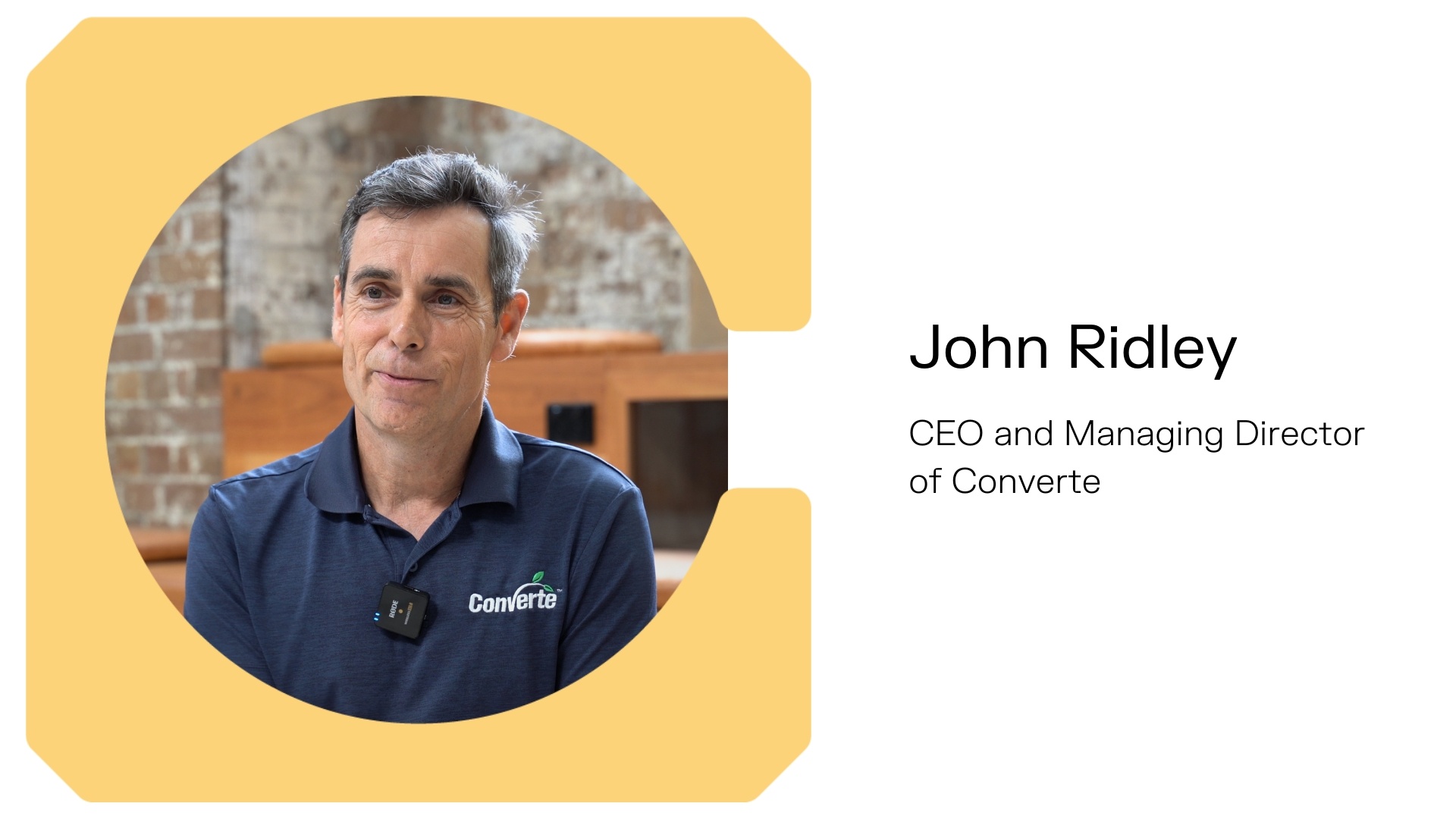How Ocean Intelligence slashes emissions equivalent to a Sydney to London flight with their technology
.png)
"About 90% of everything we buy is shipped by sea....producing over a billion tonnes of greenhouse gas emissions per year. That's about 3% of global emissions. So, we urgently need to find innovative ways to cut shipping emissions. " - Shane Keating, Founder of Ocean Intelligence
Get to know Shane Keating, Founder of Ocean Intelligence and participant in Cicada's Space Fast Start Program. Shane is also an Associate Professor in the School of Mathematics and Statistics at the University of New South Wales. His research uses powerful mathematical tools to better understand the ocean and our planet.
Can you tell us about Ocean Intelligence and what inspired you to launch it?
I have always been fascinated by the ocean. I grew up by the sea in a small fishing village on the west coast of Ireland. Now, as an Oceanographer at UNSW Sydney, I carry out research to better understand the ocean and how it is changing because of climate change.
At Ocean Intelligence, we are using ocean currents to help decarbonise the shipping industry. The ocean is filled with 'eddies'—rotating vortices of seawater a few hundred kilometres across that are the oceanic analogue of storms in the atmosphere. These eddies are found in every ocean basin and have typical speeds of a few kilometres per hour—enough to speed up or slow down a ship by as much as 30%. That can make a significant difference in the fuel a ship uses.
What are some alarming statistics about the industry? How is Ocean Intelligence working to overcome this?
Shipping is crucial to the global economy; about 90% of everything we buy is shipped by sea. But it is also very carbon-intensive. Shipping produces over a billion tonnes of greenhouse gas emissions per year, which is about 3% of global emissions. So, there is an urgent need to find innovative ways to cut shipping emissions.
We are developing software that helps commercial ships travel along optimised routes that take advantage of favourable currents and avoid unfavourable ones.
This allows ships to reduce the amount of fuel they use and, hence, cut emissions without impacting their travel time. The goal is to be able to do this in real time onboard the vessel itself.
Ocean currents vary greatly in both time and space, so the biggest challenge to finding these optimal routes is our ability to predict how ocean currents will evolve along the ship’s route. However, several exciting technological developments are happening right now that will dramatically improve our ability to predict ocean currents. These include new satellite remote sensing technology, low-cost IoT sensors, improved ocean models, and, of course, artificial intelligence to help make sense of all this data.
We've also started developing some exciting new products using artificial intelligence and machine learning. In the near future, we hope we can use the data collected from sensors to build a "digital twin" of individual vessels. This will allow us to predict how each ship performs in different ocean conditions, so we can more accurately predict fuel use and emissions.
What key milestones are you most proud of?
A few weeks ago, I travelled on a cargo vessel crossing the Tasman Sea from Australia to New Zealand. While I was onboard, I measured ocean temperatures to help validate our forecast models. The voyage was very intense — we hit some heavy seas, and I worked day and night for a week!
It was a great opportunity to talk with the crew and understand their route planning process. The data I collected also allowed me to demonstrate that the vessel I was travelling on could potentially reduce its carbon emissions by more than 6 metric tonnes of CO2 equivalent per day. That's more than the carbon footprint of a return flight from Sydney to London.

How did your participation in Cicada Innovations' Space Elevate contribute to helping Ocean Intelligence achieve its goals?
Coming from an academic background, I did not have much of a grasp on the commercial world. Although I had a clear vision of what I wanted to do, I didn’t know how to get there. The Elevate workshop gave me the tools to start thinking clearly about how to identify my customers, build partnerships, and design an MVP. It was an electrifying experience!
What are three lessons you've learned from founding a company that is useful for other entrepreneurs in the sector?
- Get your founders group right. Your co-founders don't always need to be your friends, but you will need to have mutual respect, understanding and good communication. You are going into battle together. It is going to be a long haul.
- Listen to your customers. You might have the most amazing solution, but it's worthless unless it solves a problem someone is willing to pay you money to solve. Understand your customer's world and their concerns.
- Use the network of entrepreneurs available to you. Lots of people have been through what you are going through (the good and the bad). You'll be amazed at how many people are happy to give encouragement, share wisdom, and make introductions.
Space Fast Start Program:
Cicada Innovations' Fast Start is a 6-month intensive program tailored for ambitious space ventures so they can supercharge their commercialisation journey.
Find out more about our Space Fast Start Program Here


.jpg)